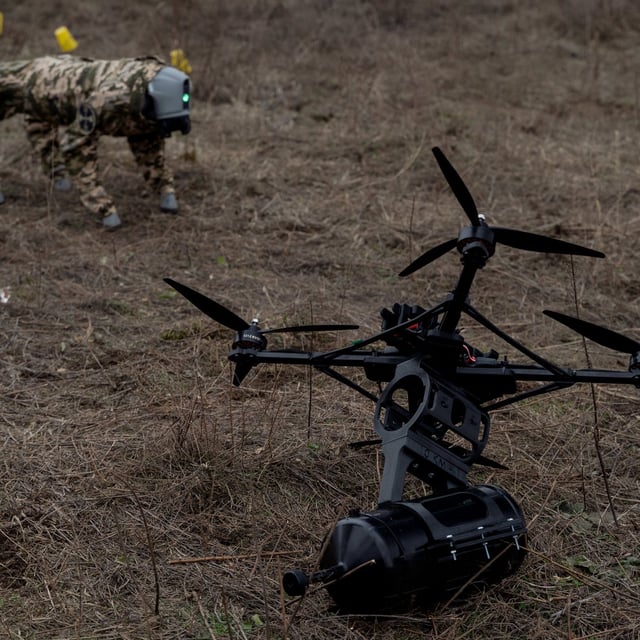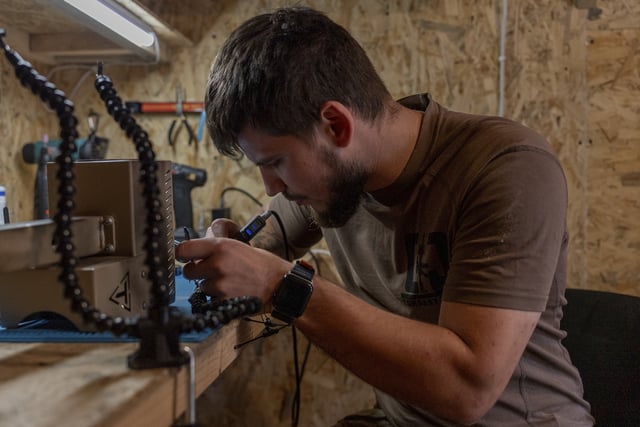Overview
- Frontline units are using the machines to move supplies, clear mines and, in limited cases, evacuate casualties to keep troops out of exposed areas.
- Commanders say adoption is accelerating to offset a shortage of soldiers more than three years into the war.
- Operators pair the robots with reconnaissance drones for navigation, at times relying entirely on the drone feed because some vehicles lack cameras.
- A recent mission moved about 200 kilograms of supplies several kilometers at roughly 6 km/h and returned to base.
- Slow speed and open-ground routes leave the machines vulnerable, prompting welded cages, mine rollers and EW control tweaks, with prices ranging from about $1,000 to $64,000 and losses sometimes tallying several in a week.

